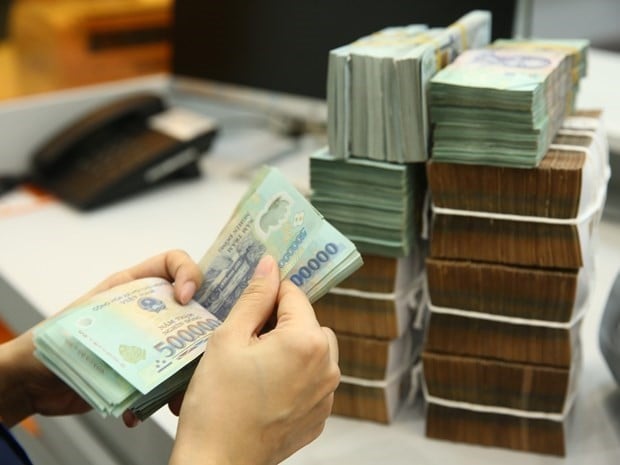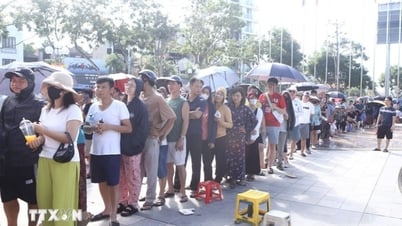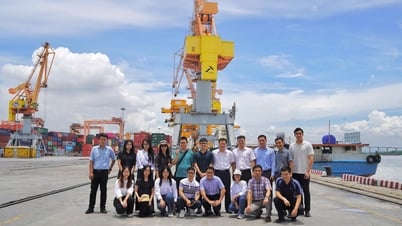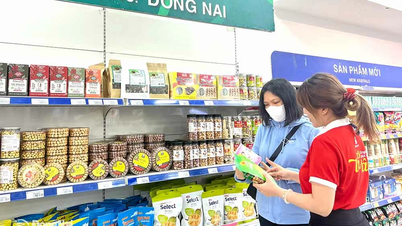The highlight was the trading session with liquidity of over 30,000 billion VND along with information about the new trade agreement between Vietnam and the US, helping VN-Inex approach the historical resistance zone of 1,400 points.

The Vietnamese stock market has just experienced a dramatic trading week in early July. The excitement of cash flow and the increase of VN-Index with the macro challenges are turning points.
The highlight of the market was the trading session with liquidity of over 30,000 billion VND, along with information about the new trade agreement between Vietnam and the US. formation, the general index of the market has begun to approach the historical resistance zone of 1,400 points.
The first trading week of July saw the stock market closed with green dominating the electronic board. The VN-Index closed the trading week at 1,386.97 points after gaining 15.53 points (up 1.13%). Thus, the index has officially headed towards the strong psychological resistance zone around 1,400 points. This is the historical peak set in July 2021.
Likewise, the VN30 index also increased by 0.87% to 1,488.77 points, approaching the resistance zone of 1,500 points, the highest level recorded in March 2022.
The biggest bright spot of the market is the strong return of cash flow. Especially in the trading session on July 3, liquidity in the market was pushed to a very high level, with the trading volume on the HoSE alone exceeding 1.3 billion shares, equivalent to a value of VND30,000 billion. According to experts, this signal shows the interest of short-term speculative cash flow and market expectations.
Notably, after a long period of net selling, foreign investors had an impressive week of net buying. restricted, foreign investors net bought a total value of VND5,167 billion on the HoSE. This move was not only an important boost to capital flows but also contributed to strengthening domestic investors' sentiment about the market's potential.
Analyzing the market developments, Mr. Phan Tan Nhat, Head of Analysis Group of Saigon- Hanoi Securities Company (SHS) said that the market boom did not occur evenly across all industry groups, but clearly demonstrated the circulation and differentiation of cash flow. However, the market breadth was quite positive and maintained a recovery rotation.
Notably, the groups of seaport, securities, seafood, agriculture , information technology, insurance, banking codes... In particular, the agricultural group (HAG, ANV codes) recorded impressive cash flow attraction in the last trading session of the week. On the contrary, some export-intensive industries were under clear adjustment pressure. "While the textile and garment group, industrial parks... were under adjustment pressure under the pressure of high tariffs," Mr. Nhat emphasized.
This differentiation shows that money is actively looking for opportunities in sectors that are less affected by tariff risks or sectors that have their own growth stories and have not increased too much in price. This move shows a repositioning of the portfolio from “smart” money seeking to adapt to the new context.
Agreeing with the above assessment, the analysis team of Vietcombank Securities Company (VCBS) also pointed out that the market's growth momentum was mainly led by large-cap stocks (such as FPT, HPG) and leading banking stocks (VCB, ACB , BID). Demand from pillar stocks gradually spread to the entire market, including industry groups that had not increased strongly in the previous period (such as securities with codes VIX, HCM... and real estate such as DIG, PDR, NVL...).
Multidimensional impact from trade agreement
The factor that has the greatest impact on investors' psychology and strategy in the long term is the new trade agreement with the US. The news that the US may impose a 20% tax rate on Vietnamese goods and especially 40% on goods in transit from other countries has created a “wave” of caution.
According to Mr. Phan Tan Nhat (SHS), this is a big challenge, because the 40% tax rate on transit goods will be a pressure because Vietnam is one of the most export-dependent economies in the world. Besides, the current supply chain is very complicated, many domestic enterprises use imported components and raw materials. The pressure on the trade balance and imports and exports will be very large.
To overcome this challenge (in the spirit of Resolution 68-NQ/TW 2025), domestic enterprises need to improve their capacity, especially the private economic sector must reduce dependence on goods of foreign origin. In this context, Mr. Nhat said that the investment portfolio needs to be restructured, increasing the focus on industries and companies that are less affected by tariffs, serving the domestic market of 100 million people.
To overcome this challenge (in the spirit of Resolution 68-NQ/TW 2025), domestic enterprises need to improve their capacity, especially the private economic sector must reduce dependence on goods of foreign origin. In this context, Mr. Nhat said that the investment portfolio needs to be restructured, increasing the focus on industries and companies that are less affected by tariffs, serving the domestic market of 100 million people.
On the management side, at the regular press conference on July 3, the Spokesperson of the Ministry of Foreign Affairs said that the Vietnamese and US negotiating delegations are coordinated to concretize the content of the discussion between the two countries' senior leaders. At the same time, Prime Minister Pham Minh Chinh also emphasized the need to adhere to the "3 accelerations" goal while highlighting the difficulties and challenges when the international situation is complicated, the pressure on the exchange rate is still high, and the 8% growth target still faces many difficulties and pressures.
evolved, experts share the view that the stock market is entering an important phase with intertwined opportunities and risks.
Technically, Mr. Phan Tan Nhat warns that the short-term trend of VN-Index is to maintain growth above the support zone of 1,350 points. However, both VN-Index and VN30 are in a short-term overbought state (while VN-Index and VN30 are under correction pressure at the price zones of 1,400 points and 1,500 points). These are strong resistance zones, specifically the historical peaks of 2021 and 2022.
In that context, investment strategies need to be adjusted flexibly and cautiously. Mr. Nhat recommends that investors consider restructuring their portfolios, focusing on businesses that are resilient to the tariff "shock"./.
Source: https://baolangson.vn/chung-khoan-dong-tien-dinh-vi-lai-cuoc-choi-truoc-nhung-ap-luc-thue-quan-5052280.html
















































































![[Infographic] Newly established businesses hit record high](https://vphoto.vietnam.vn/thumb/402x226/vietnam/resource/IMAGE/2025/7/5/96ee3c931c94490a9cbf67f1101612cd)








![[OCOP REVIEW] Bay Quyen sticky rice cake: A hometown specialty that has reached new heights thanks to its brand reputation](https://vphoto.vietnam.vn/thumb/402x226/vietnam/resource/IMAGE/2025/7/3/1a7e35c028bf46199ee1ec6b3ba0069e)









Comment (0)